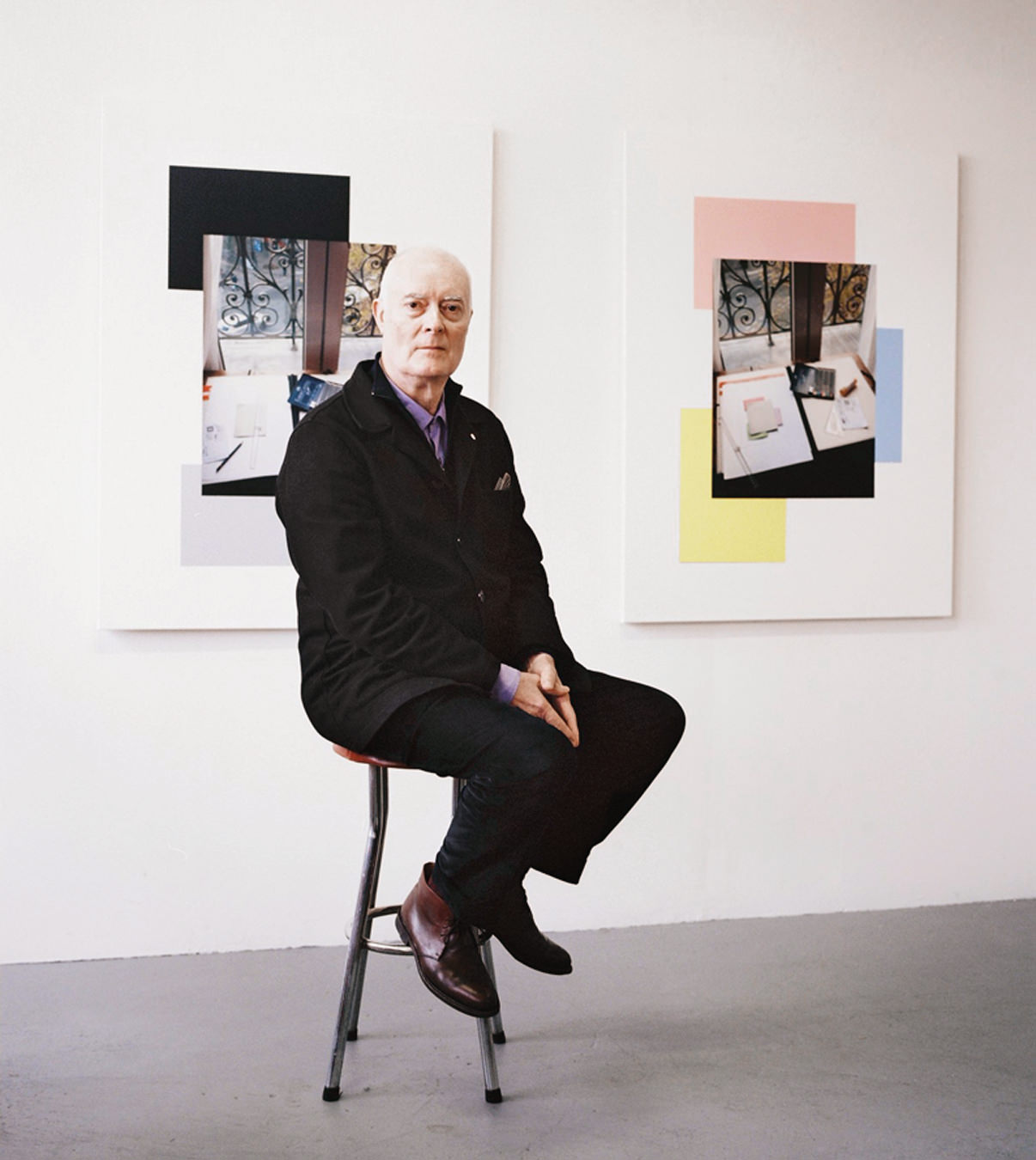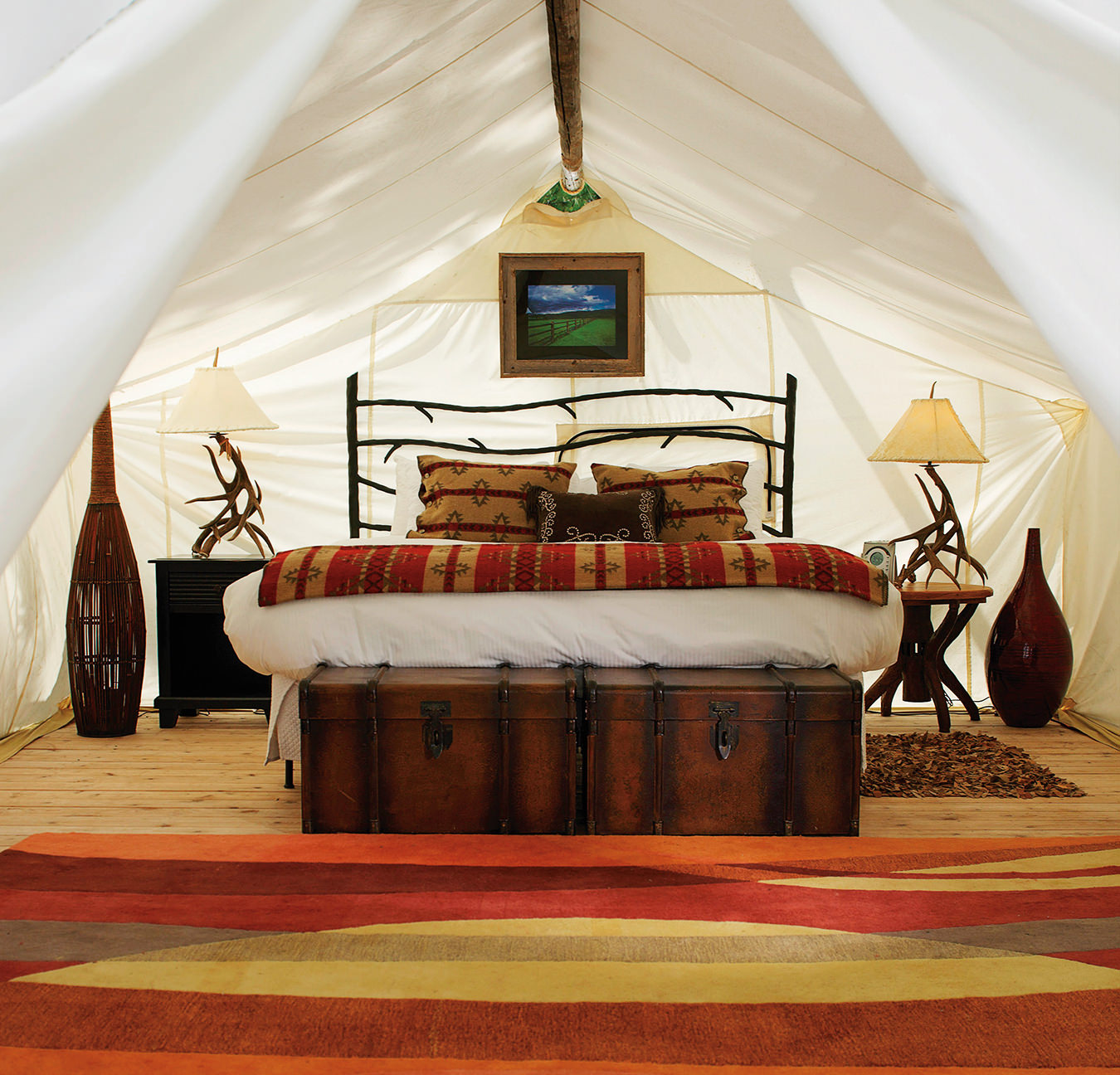A Round Pavilion in Mexico City Is a Haven for Aromatic Exploration
In the trendy Juárez neighbourhood of Mexico City, Xinú Marsella is part garden, part art installation, and part perfume and home scents boutique. The round structure nestled within an urban garden is the former site of a car repair workshop. Since scent is one of the most transportative and powerful senses, it was fitting to create a boutique that upended the typical retail experience for one that was thoroughly experiential.
Decorated designer Héctor Esrawe, founding partner of Xinú, also happens to be behind the well-respected multidisciplinary design studio Esrawe and thus the obvious choice to take on the project. Esrawe also designed the brand’s Mexico City showroom in 2016.

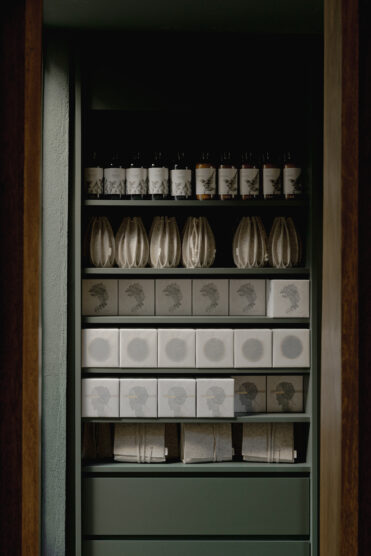

Xinú derives its inspiration from the Americas, and since the designer was so intimately familiar with the brand, he was able to create a space that perfectly captures its ethos. Shoppers enter through a green metal gate and follow a flagstone path through a short passageway framed on either side by potted plants and trees. They emerge into an urban oasis, a densely planted garden of greenery tucked between buildings. In the middle stands a circular wooden structure.
The pavilion has a radial arrangement with a central grooved column from which burst wide ceiling beams. Underfoot, wood planks are laid in a V-shape, again emanating from the column. A low shelf collars the pillar, diffused light glowing from the centre. Around the entire pavilion, the walls are made of narrow wood pillars connected with glass panels except for the two thick wooden doors. With so much glass and wood, the boutique appears to be open-air, with no disruption between nature and boutique.
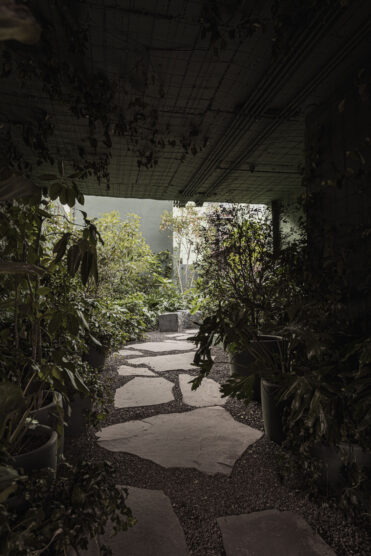
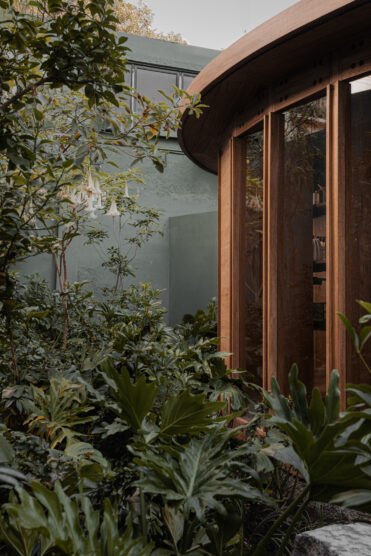
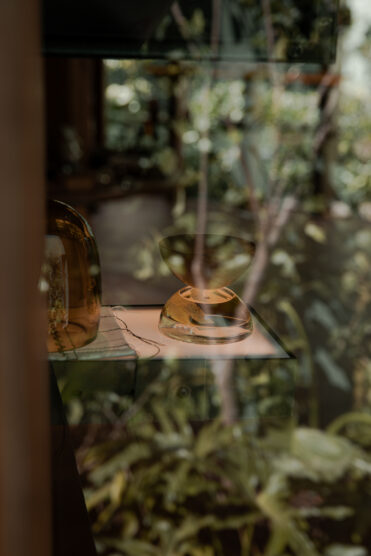
Hanging from the pillars are framed pieces of art and floating wooden shelves designed by Cadena Concepts and arranged with products. Also suspended from the wall, black-framed glass boxes hold aromatic delights like dried lemons and wood pieces. On the shelves, the Xinú products themselves become artwork: candles in handmade ceramic vessels and pod-like carrying cases made from raw materials, tidy little bundles of incense wrapped in floral paper, and rounded hourglass-shaped bottles of perfume with oversized wood stoppers. Across the layout, the floor is kept open, for a serene and uncluttered gallery-like experience.
From floor to ceiling, everything is made from warm wood except the glass panels and a ring of simple black spotlights, expertly arranged by Mexico City lighting designers Lighteam to illuminate the displays after sundown.

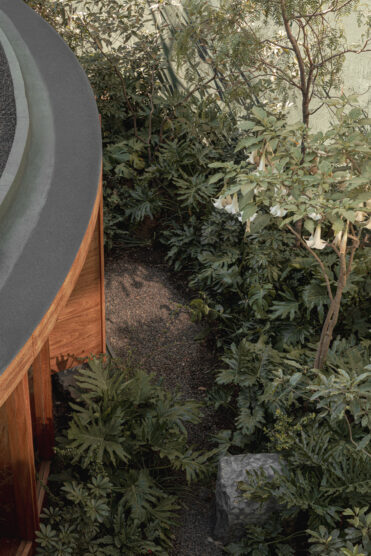
With its round layout and lush surroundings, the boutique feels almost like a temple happened upon while trekking through the jungles of South America—it is both grand and wild. Much like how perfume is not just experienced by the wearer but those around them too, Xinú Marsella is intended not just for its customers but as a garden for the whole neighbourhood to enjoy, blending the lines between public, retail, and green spaces.
Photographs by Alejandro Ramírez Orozco.



